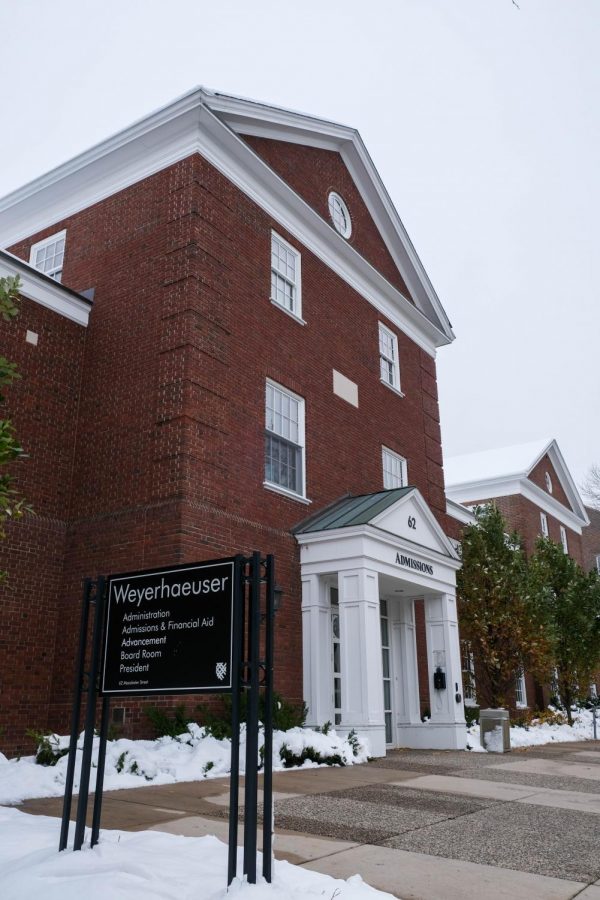Macalester to incur budget deficit for 2020-2021 academic year
November 5, 2020
In a finance webinar on Oct. 30, Vice President of Administration and Finance David Wheaton announced that Macalester estimates a $5.5 million operating deficit in the budget for this academic year, the first deficit since the 1970s.
This budget finalized by the Finance Committee in October provides totals for Macalester’s expected revenues and expenses for the 2020-21 year as a revision of the original budget approved on Jan. 31 2020. Where Macalester originally expected to take in $122 million in revenue, the committee now projects an intake of $104.9 million.
“The primary reason for a deficit, really, is the revenue,” Wheaton said, “We won’t have as many students enrolled as the original budget contemplated, although it’s pretty close.”
Whereas the original budget anticipated an average of 2,051 students enrolled per semester during the 2020-21 year, the new budget estimates a semester average of 1,936 students due to COVID uncertainties. Wheaton expressed optimism about the new total.
“The revised number is 94% of the original, which I would say is quite positive,” he said.
He also emphasized the importance of this reduction in determining this year’s revenue.
“The student count is the most important single variable that we have for how we manage the budget,” he said.
In addition to fewer students paying tuition, fewer students living on campus and paying room and board fees further reduces Macalester’s anticipated revenue.
Macalester housed just 621 students in on-campus residence halls during Module 1, compared to the normal occupancy of 1,264. Wheaton explained that up to 722 students could live in residence halls during future modules while also safely limiting bathroom density.
“We do know that we’re going to welcome 60 more students in Module 2… so that will add to the residence hall density, but still keep it below the level that would be unsafe,” he said.
“In the spring, we’ll have 722 available beds on campus… we decided to build the revised budget on the Module 1 number as a kind of conservative approach,” Wheaton said.
Other areas contributing to reduced revenue include reduced fundraising, no summer programs and low interest rates.
The Finance Committee also projects a reduction in expenditures from $120.1 million in the original budget to $110.4 million in the revised budget. The biggest savings come from study away.
“The way study away works is students pay tuition, then we pay all the providers,” Wheaton said. “Since students weren’t able to go in the fall, then we didn’t make any of those payments.”
The cancellation of international study away in the spring further reduces study away expenditures.
The temporary suspension of employee retirement contributions, faculty and staff salary freeze, hiring slowdown, postponement of infrastructural and technological maintenance projects — including renovating the library, chapel and the building that houses the bookstore — also contribute to expense reductions to a lesser extent.
Wheaton described how Macalester plans to cover the remaining deficit of $5.5 million.
“Our next step is likely to go to the savings account,” he said.
Wheaton hopes to withdraw from Macalester’s $16 million in cash savings, barring approval from the Board of Trustees.
“We would want at least half of that balance to still remain in the savings account,” he said.
Wheaton mentioned that the operating deficit postponed preliminary discussions of a larger infrastructural project. The college was starting to look at building a new residence hall, most likely in the empty lot on Grand Ave. near George Draper Dayton Hall.
Regarding Macalester’s overall finances, Wheaton is optimistic due to the limited extent to which COVID-19 has reduced enrollment.
“[The deficit] affects the overall finances only modestly,” he said. “As long as the enrollment continues to trend the way it has so far, then the size of the loss is something that we think we can manage.”
Wheaton concluded by commenting on the long-term impact of this deficit on Macalester.
“Macalester, I would say, is pretty well-positioned and has been for a long time, but the pressures that are coming on higher ed are ones that we will have to adopt,” he said. “We’re in a favored position, but not immune.”














Kimble Johnson • Nov 19, 2020 at 7:54 pm
Mac has not been relevant to me since you blocked Ted Turner from speaking years ago. Now we have some hare-brained President promising to bail miscreants out of jail. Is Mac made of money? Fill up their little skulls with mush and let them loose on the streets, hoping they will get arrested. Great plan! I’ll bet that gets the alumni dollars flowing in.